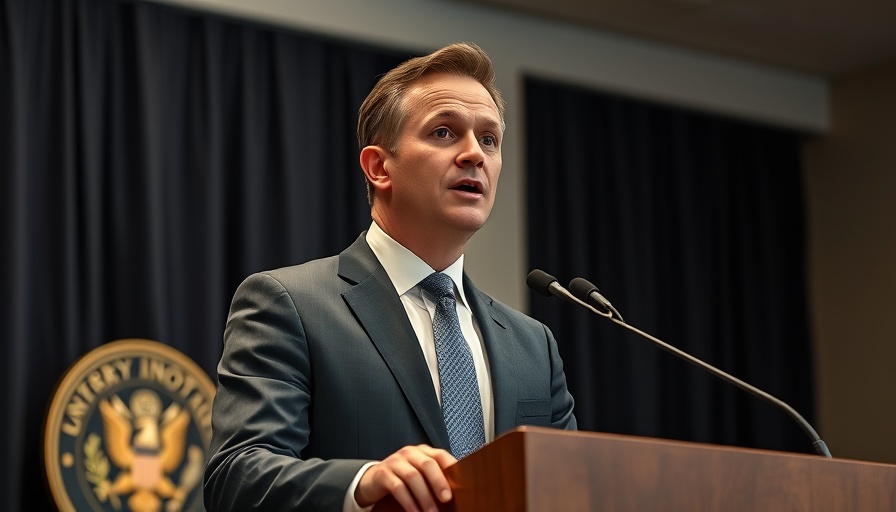
ECA’s Legal Maneuver: The Fight Against the 2025/26 Budget
The Economic Freedom Fighters (EFF) have embarked on a critical legal battle, having submitted court papers in the Western Cape High Court challenging the Democratic Alliance’s (DA) opposition to the government's recent 2025/26 Budget. At the heart of the EFF’s argument is the claim that the budget was adopted unlawfully and in violation of constitutional protocols. This contention, articulated by EFF National Spokesperson Sinawo Thambo, revolves around the necessity of ensuring that the processes governing the use of public resources reflect accountability and democracy. Thambo's assertions reveal underlying tensions within South African politics, where accountability and public trust are repeatedly tested.
Coalition Controversies: The Context Behind Budget Defiance
As South Africa grapples with intricate political dynamics, the challenge to the 2025/26 Budget cannot be viewed in isolation. The backdrop of coalition governance, predominantly marked by the contentious relationship between the African National Congress (ANC) and the DA, adds another layer to this dispute. Both parties are exploring the implications of their grievances in court, highlighting a pivotal moment as the country heads into the 2024 general elections. Especially with rising voter turnout and discontent surrounding service delivery, the demand for strict adherence to legislative procedures is more pronounced. Should the court rule in favor of the DA or the EFF, the implications could resonate through to the 2026 municipal elections, defining the operational landscape of political accountability.
Public Sentiment: The Voice of Ordinary Citizens
For South Africans, the implications of these legal battles stretch beyond political parties. Citizens increasingly feel the weight of economic policies on their daily lives, with issues like youth unemployment and service delivery at the forefront of public consciousness. With social grants and land reform likely to be impacted by budgetary allocations, the call for transparency is paramount. The EFF’s legal action resonates with a broad spectrum of societal concerns, and any ruling could establish significant precedents for how the forthcoming budgets will be approached, ultimately influencing public sentiment and trust in governmental processes.
Setting a Precedent: Constitutional Authority in Budgetary Matters
The DA’s assertions regarding the adherence to proper parliamentary procedures highlight critical concerns about the powers of individual ministers, particularly in relation to raising Value Added Tax (VAT). This dialogue reveals a legal lacuna that necessitates judicial clarification, involving issues around the executive accountability and legislative oversight mechanisms. Understanding how these power dynamics play out in the courtroom is essential, not only for the involved parties but for establishing future protocols around budgetary processes.
Expectations for the Court Ruling: Navigating the Future of Governance
As the court case unfolds, the anticipated ruling will serve as a litmus test for governance norms in South Africa. It illustrates the complexities of a coalition government, the confinement of executive powers, and the importance of parliamentary procedure in a democracy. Legal experts suggest that regardless of the outcome, the ramifications of this case will echo through the nation's political corridors, stressing the critical need for reform in how budgets are conceived and enacted, and potentially redefining the relationship between economic policy, governance, and public trust.
In conclusion, the ongoing grafting of political parties and the judicature’s role could redefine the future of public finance in South Africa. Professionals in political governance and legal fields must stay informed and engaged to ensure a robust response to these challenges.
 Add Row
Add Row  Add
Add 




Write A Comment